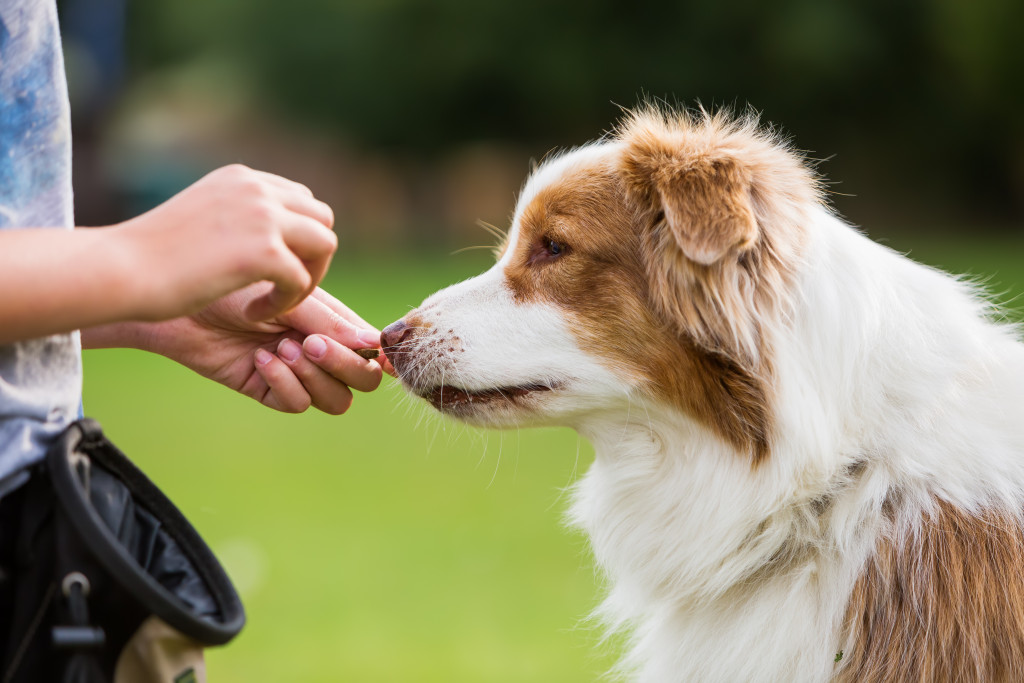As the temperatures start to drop, it’s essential to take extra steps to ensure your dog is comfortable and safe all winter long. Here are a few tips on preparing your dog for the winter season.
Keep Their Coat Healthy and Thriving
One of the best ways to keep your dog comfortable all winter is to ensure its coat is healthy and in good condition. Start by brushing their fur regularly to remove any knots or tangles. You may also want to invest in a de-shedding brush, which can help remove any excess fur that isn’t necessary for insulation. In addition, be sure to give them regular baths throughout the winter months using a quality dog shampoo that won’t dry out their skin.
If your dog’s coat is particularly thick or long, you may need to take them to a professional groomer for a haircut. A groomer can help thin out their coat and remove any excess hair, which will help them stay warm and comfortable all winter long. This can help prevent mats and tangles, as well.
Finally, give your dog plenty of quality omega-3 fatty acids throughout the winter months. This can help keep their coat shiny and healthy, and it will also help reduce any dryness or itchiness that may occur. You can find quality omega-3 supplements at most pet stores.
Invest in Some Warm Dog Clothes
While some dogs have thick fur coats that provide plenty of warmth, others may need a little extra help staying cozy all winter long. If your dog falls into the latter category, invest in some warm dog clothes like sweaters, jackets, or boots. You can also get them a doggy bed with a built-in heater to keep them extra cozy at night. Just be sure not to put any clothes on your dog that they’re not used to wearing, as this could irritate their skin.
Moreover, ensure your dog has a warm place to sleep at night. This could be a heated dog bed, a spot on the couch with a blanket, or even just their bed in a warm room. Dogs tend to sleep more during the winter months, so they must be comfortable and warm when they do.

Keep Their Paws Protected
Your dog’s paws are particularly susceptible to cold weather and harsh conditions during the winter months. Be sure to regularly check their paws for any cracks or cuts and apply a pet-safe balm if necessary. You should also trim their nails regularly to prevent overgrowth and invest in some quality booties or socks if they’ll tolerate them. And always wipe down your dog’s paws after they come inside from being outside—this will help remove any salt, chemicals, or other irritants that could cause discomfort.
If you notice your dog’s paws are looking red, inflamed, or swollen, it may be a sign that they have frostbite. Another telltale sign is if your dog is excessively licking or chewing its paws. If you think your dog may have frostbite, consult your veterinarian as soon as possible. This may require emergency treatment.
Provide Plenty of Exercises
Your dog still needs plenty of exercise during the winter months, even if they don’t feel like it. A good way to get them moving is to take them on shorter, more frequent walks rather than longer ones. You can also try playing some indoor games with them, like fetch or tug-of-war. Just be sure not to overdo it—if your dog is panting excessively or seems tired, give them a break.
And if you do take your dog outside for a walk or run, be sure to start slowly and gradually increase the intensity. This will help them warm up gradually and prevent any injuries. Moreover, always keep an eye on your dog while they’re outside—snow and ice can cause slips and falls, so be vigilant.
Adjust Their Diet Accordingly
Just like humans, dogs need more calories during the winter months to stay warm. If you notice your dog starting to pack on a few extra pounds, cut back on their food slightly. However, if they seem slim or underweight, you may need to increase their food intake or switch them to higher-calorie food. In addition, make sure they have access to plenty of fresh water at all times—dehydration is a common problem during the winter months due to the dry air.
It’s important to keep your dog hydrated all winter long, just as you would during any other season. Dogs can get dehydrated from the cold weather and dry indoor conditions, so be sure to give them plenty of water throughout the day. You may even want to consider investing in a water fountain for your dog to encourage them to drink more. And if you notice your dog isn’t drinking as much water as usual or seems particularly thirsty, take them to the vet—this could be a sign of something more serious.
Moreover, make sure you’re feeding your dog a high-quality diet that’s rich in nutrients and vitamins. This will help keep their immune system strong and their coat healthy. You may even want to consider supplementing your dog’s diet with omega-3 fatty acids, as mentioned above.
By following these simple tips, you can help ensure your dog has a happy and healthy winter season!

